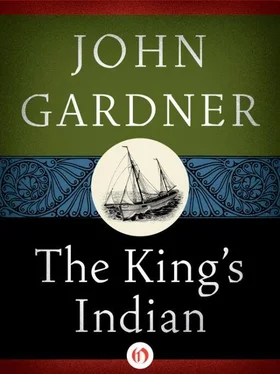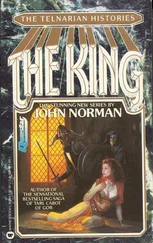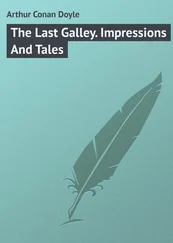But I haven’t interrupted this flow of things imagined for mere chat about the plot. This house we’re in is a strange one, reader — house or old trunk or circus tent — and it’s one I hope you find congenial, sufficiently gewgawed and cluttered but not unduly snug. Take my word, in any case, that I haven’t built it as a cynical trick, one more bad joke of exhausted art. The sculptor-turned-painter that I mentioned before is an actual artist, with a name I could name, and what I said of him is true. And you are real, reader, and so am I, John Gardner the man that, with the help of Poe and Melville and many another man, wrote this book. And this book, this book is no child’s top either — though I write, more than usual, filled with doubts. Not a toy but a queer, cranky monument, a collage: a celebration of all literature and life; an environmental sculpture, a funeral crypt.
The guest looks embarrassed. The angel disapproves.
“Tell on, Johnny!” the old mariner cries, and throws his head forward and slaps his knees.
“No, you tell on,” says I, “I just thought they’d like to know.”
XXIX
Says he:
“Then this, sir.
“Miranda lay face down on the berth, refusing to turn to me or speak. Though she’d heard me coming, she hadn’t bothered to pull the cover up. She lay half-bare in her ragged dress, her skin mottled and clouded like marble, wide milky veins between the green and plum-blue bruises. ‘Miranda,’ I said, ‘now you listen to me.’ When I touched her shoulder she twisted away, lightning fast, rolling over on her side and straight up on one elbow, not bothering to hide her buttonless, torn-open front, and glared at me with one eye, like Odysseus’ Cyclops. Her face was more swollen than before; not a trace of its former beauty. Her smile was scornful — cunning and superior. I shook my head, and she pretended to laugh, a laugh identical to Wilkins’—or so it seemed to me — full of rage. Her face, all at once, went revoltingly coy. With a gasp of pain as great as mine, she threw away the cover to show the rest of her. The blood, where the dress was ripped away, was dry and peeling. I stood up, turned my eyes from her. ‘Miranda, see here,’ I said sternly.
“ ‘I gave myself to you,’ she said, violent, ‘—wrote you beautiful love poems, shamed myself — blessed Heaven how I loved you, Jonathan! — but even then I was nothing. And now —’
“ ‘Be still and listen,’ I said. Love poems indeed. And yet it was impossible not to believe her at least partly. I turned back to her, and it did not check me that she refused even now to cover herself, reveled in her destruction, flaunted her shame as she’d flaunted, once, her supposed nobility. Ah, pride, pride! No end to it!
“ ‘I’ll take care of ye, Miranda. But from now on, because of yer criminal nature, ye must give up this willfulness and obey me absolutely. Otherwise I’ll clap ye in irons and that’s a fact.’
“ ‘Take care of me!’ she sneered. ‘Jonathan, yer too kind.’
“ ‘And love you, that too.’ My voice was shaky, and where the words came from, Heaven knows.
“She laughed again, her face filled solid with what might have been hate; then, fast as a cat’s paw, she snatched the cover up and lay rigid, eyes clenched shut. I was helpless, viciously slapped back for an instant, then suddenly I understood and could have laughed. In her place, I wouldn’t have pulled up that cover but for one reason: uncertainty, a crack in my wall of despair. Her dyed black hair was coarse and scratchy, but at the roots it was yellow and delicate, a coming of spring.
“ ‘Ah, ah, wicked Miranda,’ I said. She would come to love herself again, in time. She would preen in the broken piece of mirror on the wall, smiling in such a way that she did not show her broken teeth, coyly batting the lash on her damaged eye. I could have told her what Wilkins said: There are no stable principles. I put my hand on her shoulder and a queer shock of excitement went through me. I would tyrannize her back to health. She trembled, but didn’t turn away. ‘You’ll be all right, Miranda.’
“For a long time she was silent, bristling, or so I thought. Then suddenly she raised up a little and turned her face toward me. ‘Fool,’ she whispered. ‘I brought my father to the deck for you. You couldn’t find him, for all yer tricks. The whole lot of you couldn’t make him show himself.’
“It stopped me for a moment, thoroughly confused me. I remembered that motionless listening. I said: ‘And the sailor you murdered? That was a kindness for me too, Miranda?’
“ ‘The knife was thrown, Jonathan. Ye must’ve been looking at the sailor at the time. If ye’d been looking into the cabin ye’d’ve seen it thrown.’
“I laughed, wishing it were true and half believing it. ‘And when you came to my bunk, the time I caught your hand?’
“ ‘I was looking for the books, to keep you from learning who I was, keep you from despising me. Have you any idea what it’s like to be—’ She paused, too proud to let her humanness slip out, if that was what it was. ‘—Anyway, the books were mine, remember?’
“ ‘Yes, of course. And the time you told me that ridiculous ghost ship story? “Believe in me, Jonathan!” That, too, was for my sake?’
“ ‘The story’s true. Not even my father could find a flaw in it.’
“ ‘A hoax, a trick by Wilkins. He said so.’ I watched her eyes.
“ ‘Wilkins is a liar!’
“I shook my head. ‘Miranda — poor desperate Miranda!’ I said.
“ ‘Fool,’ she whispered again, and drew back from me. The cover, where it hung from the edge of the berth, stirred a little. ‘Poor desperate Miranda. What do you know about poor desperate Miranda? — what does anyone know — even poor desperate Miranda herself?’ She’d be crying in a minute, but not from self-pity, from an overflow of anger that arched beyond me to all the universe. ‘I lived with that tricky-brained devil all my life, and maybe loved him — just a child … Never mind, never mind. He was my father, and fond of me, whatever you may say, though also of course he was a devil. Never mind. I too learned magic— the child-bride stage-smile for when Daddy was in a rage, and a smile I really meant, but identical to the first, for when Daddy was in jail, or drinking and talking about suicide. “Be real, Miranda,” that’s what you ask. But theater curtains are my outer skin, and my soul is the sound of the piano player. You hoped perhaps I’d grow up pure and innocent, untouched by my surroundings, some mysteriously engendered precious jewel in the forest, or your friend with the bone in his nose, Nigger Jim. But there is no purity or innocence in theaters, or in forests, or in oceans — and no wickedness, either. Only survival, only cunning and secrecy. The tortuous opening of theater curtains, the deep, deep breath, then— God help us! — the terrifying dimming of the lights. Innocence, Jonathan! You poor desperate fool!’ She turned her face away. I did not notice, for a time, that tears were washing down her cheeks. ‘I was beautiful,’ she said.
“I thought about it, studying her bruises. They had become— quite suddenly, perhaps because for an instant she’d forgotten her secrecy and cunning — no longer repulsive. They’d become outer wrappings, mere theater curtains, as Miranda said. Particular encasements of the painful universal desire and fear.
“ ‘I’ll be back,’ I said abruptly. I left her, then quickly returned, bringing water and towels.
“She drew back in fright. ‘Jonathan!’
“I ignored her. I sat on the berth, beside her, and gently dabbed away the blood at the edge of her lip. I rinsed the cloth and moved on to her neck, then her shoulder. She was trembling.
Читать дальше











![John Bruce - The Lettsomian Lectures on Diseases and Disorders of the Heart and Arteries in Middle and Advanced Life [1900-1901]](/books/749387/john-bruce-the-lettsomian-lectures-on-diseases-and-disorders-of-the-heart-and-arteries-in-middle-and-advanced-life-1900-1901-thumb.webp)
